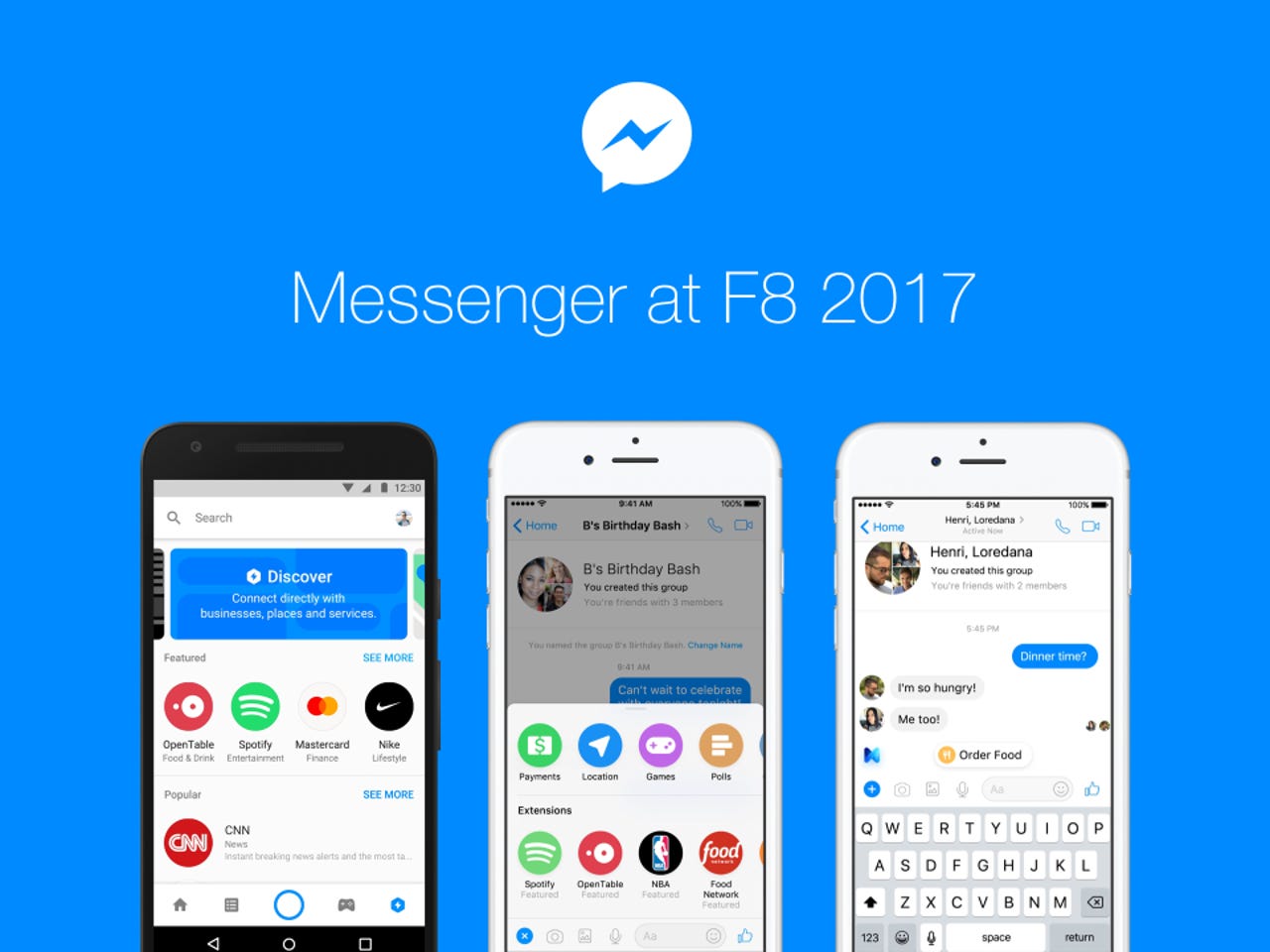Can Facebook make Messenger the 'yellow pages' of messaging?


With more than 1.2 billion people actively using Messenger on a monthly basis, the messaging platform is already the "de facto white pages," Facebook's David Marcus said Tuesday at the F8 developer conference in San Jose, Calif.
Now, as Facebook builds up a commercial presence on the platform, "we have a shot at becoming the yellow pages of messaging, too," he said.
With that in mind, Facebook is launching Messenger 2.0 with a range of enhancements to help businesses on the platform. A new "discovery tab" will enable users to search for businesses and "surface the best bots you can have in your region," Marcus explained.
Facebook is also introducing Messenger Codes. While QR codes aren't popular in the west, "we're going to give this another go," Marcus said. Using the Messenger camera, users can scan parametric QR codes to learn more about events they're attending, like basketball games and concerts.
With Chat Extensions, multiple people can chat with the same business at the same time. Marcus highlighted how it can be used to share a song within a group thread via the Spotify bot. Apple Music will be on the platform soon as well.
Lastly, Facebook is introducing "smart replies" powered by artificial intelligence for small businesses on Messenger. They're rolling out the new tool specifically with restaurants in the US. It effectively grabs information from a restaurant's page and automatically answers customer questions." Automation is going to be a critical part of our joint success," Marcus said.
Facebook brought bots to Messenger one year ago, giving businesses the ability to deliver automated customer support and content via AI. There are now more than 100,000 bots on the platform, up from 33,000 just last September. Around 100,000 developers are building for Messenger.
While there are a growing number of bots on the platform already, users have had a tough time finding them or knowing how to interact with them, Gartner analyst Brian Blau said. That makes new features like the Discovery tab a welcome addition to Messenger, but it may fully resolve the issue.
"Better search will help, but that alone won't solve the problem as the brands themselves must do more to make their content more reactive," Blau said.
Western Union is one company exploiting the updated platform in search of new clients. The company rolled out a Messenger bot Tuesday that's accessible via the Discovery tab. Odilon Almeida, president of Global Money Transfer at Western Union, told ZDNet that the financial services company isn't worried about customers finding their bot. The company plans to use its existing base of 7 million Facebook followers to create awareness for the bot, along with its flagship app and its advanced CRM tools. Additionally, for a money transfer bot like Western Union's, "mouth to mouth is very powerful," Almeida noted.
Once brands do connect with users on Messenger, the results are positive, Marcus argued.
"Companies are finding success on the platform across a variety of use cases," he said. "Instead of directing them to a mobile web page or a mobile app, you will see lift if you build the right experience."
It's hard to imagine Messenger, in its quest to be the next "yellow pages," could ever overshadow Google's knowledge graph. At the same time, the use of messaging apps is expected to grow in the coming years. Venture capitalist Mary Meeker said last year that messaging services could ultimately replace mobile home screens as a portal to the internet.
As more and more brands compete for consumers' attention on Messenger, the platform could become fairly noisy. However, Blau noted, "at that point it's also a sign that their ecosystem has taken off and can bring additional value to users and brands both."
Western Union blurs the line between cash and digital with Messenger bot: